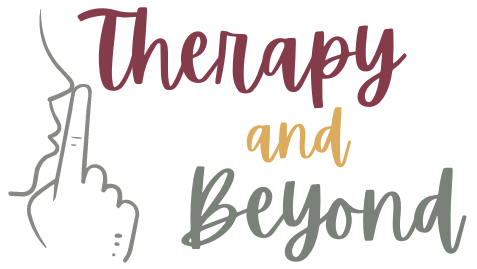Depression, Anxiety and Mood Disorders: Clinical Depression, OCD, Bipolar, Generalized Anxiety, Social Anxiety and many more.
1. Clinical Depression:
Depression, a pervasive mood disorder impacting emotions, thoughts, and daily functioning, is a challenge that many face. Mild to Major Depressive Disorder (MDD): Also known as clinical depression, depression is characterized by persistent feelings of sadness, hopelessness, and loss of interest or pleasure in activities. Depression is one of the most serious medical disorders in public health. Approximately 15% of the population will experience an episode of major depressive disorder (MDD) during their lifetime. The World Health Organization has projected that depression will remain the leading cause of disability, second only to cardiovascular disease, in the year 2020. With appropriate treatment, most patients are able to recover promptly from a depressive episode and return to their normal level of function.
2. Anxiety Disorders
Generalized Anxiety Disorder (GAD) is a type of anxiety disorder characterized by excessive and persistent worry about a wide range of topics or events, often with no specific trigger. This worry is difficult to control and typically interferes with daily functioning.
Panic Disorder: This disorder is characterized by recurrent, unexpected panic attacks, which are intense periods of fear or discomfort accompanied by physical symptoms such as heart palpitations, sweating, trembling, shortness of breath, and feelings of impending doom.
Social Anxiety Disorder (Social Phobia): Social anxiety disorder involves intense fear or anxiety about social situations, leading to avoidance of social interactions or significant distress when faced with social situations. Individuals fear being judged, criticized, or embarrassed by others. Anxiety disorders can be part of another disorder, mainly:
- Panic Disorder: Encounter sudden and recurring panic attacks, striking unpredictably, inducing apprehension about the next episode.
- Phobia: Grapple with an overwhelming dread linked to a particular object, situation, or activity, eclipsing rationality.
- Social Anxiety Disorder: Navigate an intense dread of scrutiny and evaluation in social settings, impeding comfortable interaction.
- Obsessive-Compulsive Disorder: Confront persistent, illogical obsessions provoking compulsive behaviors, leading to a cycle of repetitive actions.
- Separation Anxiety Disorder: Wrestle with a distressing fear of detachment from familiar environments or cherished individuals, causing profound discomfort in their absence.
- Illness Anxiety Disorder: Experience persistent anxiety regarding personal health, formerly recognized as hypochondria, manifesting in heightened health-related concerns.
- Post-Traumatic Stress Disorder (PTSD): Navigate enduring anxiety following exposure to a traumatic incident, disrupting daily functioning and emotional well-being.
3. Bipolar Disorder
In bipolar disorder, which affects up to 5% of the general population, there is an episode of mood elevation, where the person feels high and has increased activity. There has been an explosion of research into the neurobiology and treatment of bipolar disorder over the past 15 years, and effective treatment for the condition is now readily available. This disorder involves cycles of depressive episodes (similar to MDD) and manic or hypomanic episodes characterized by elevated mood, increased energy, impulsivity, and possibly reckless behavior. There are several types of bipolar disorder, including Bipolar I, Bipolar II, and Cyclothymic Disorder.
Anxiety disorders are the most common form of emotional disorder and can affect anyone at any age. According to the American Psychiatric Association, females are more likely than males to be diagnosed with an anxiety disorder.
4. Obsessive Compulsive Disorder (OCD):
OCD, characterized by persistent intrusive thoughts and repetitive behaviors, can significantly disrupt daily life. Our specialized services provide a supportive environment to delve into the root causes of obsessive thoughts and compulsive behaviors. OCD is characterized by recurrent, intrusive thoughts (obsessions) and repetitive behaviors or mental acts (compulsions) performed in response to these obsessions. These behaviors are aimed at reducing distress or preventing perceived harm but often interfere with daily functioning. Together, we work towards developing effective coping mechanisms and personalized strategies, empowering you to manage and ultimately overcome the challenges associated with OCD.
Anxiety and depression are both common mental health conditions that can significantly impact a person’s thoughts, emotions, and behavior.
5. Overview
Anxiety: Anxiety is a natural response to stress or perceived threats. It’s normal to feel anxious in certain situations, such as before a job interview or during a challenging life event. However, when anxiety becomes persistent, excessive, or overwhelming, it may indicate an anxiety disorder. Anxiety disorders are characterized by intense and prolonged feelings of fear, worry, or apprehension that interfere with daily functioning. Common symptoms of anxiety disorders include:
- Excessive worrying
- Restlessness or feeling on edge
- Difficulty concentrating
- Irritability
- Muscle tension
- Sleep disturbances
- Panic attacks (sudden onset of intense fear or discomfort)
Anxiety disorders can take various forms, including generalized anxiety disorder (GAD), panic disorder, social anxiety disorder, specific phobias, and more. Treatment for anxiety disorders typically involves therapy, medication, or a combination of both.
Depression: Depression, also known as major depressive disorder (MDD) or clinical depression, is a mood disorder characterized by persistent feelings of sadness, hopelessness, and loss of interest or pleasure in activities that were once enjoyable. Depression can affect how you think, feel, and behave, and it can lead to a variety of emotional and physical symptoms. Common symptoms of depression include:
- Persistent sadness or low mood
- Loss of interest or pleasure in activities
- Changes in appetite or weight
- Sleep disturbances (insomnia or excessive sleeping)
- Fatigue or loss of energy
- Feelings of worthlessness or guilt
- Difficulty concentrating or making decisions
- Thoughts of death or suicide
Depression can vary in severity, ranging from mild to severe, and it can be a chronic condition for some individuals. Treatment for depression often involves therapy (such as cognitive-behavioral therapy or interpersonal therapy), medication (such as antidepressants), lifestyle changes, and support from loved ones.
Both anxiety and depression are treatable conditions, and seeking help from a mental health professional is an important step towards recovery. It’s essential to remember that you’re not alone, and there are effective treatments available to help you manage and overcome these challenges.

